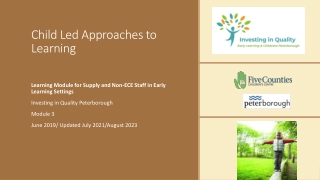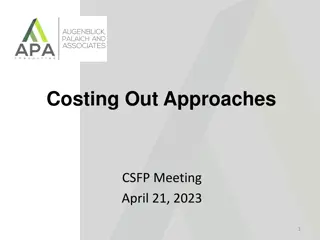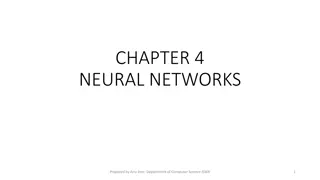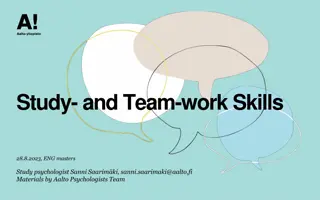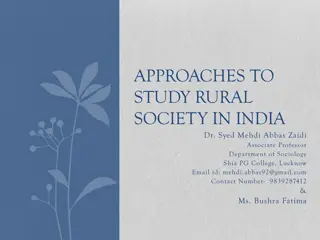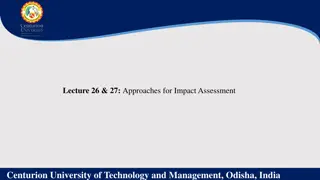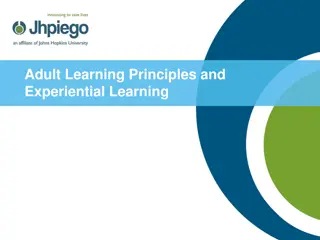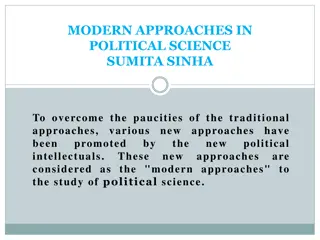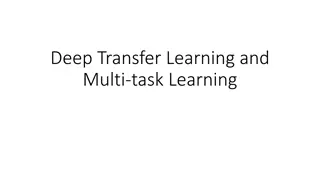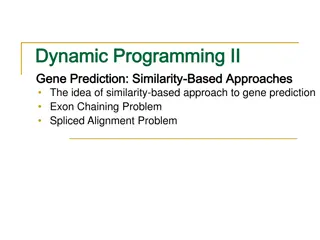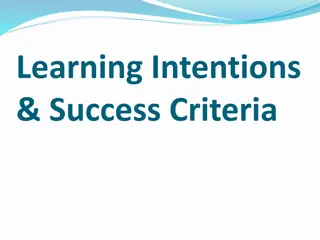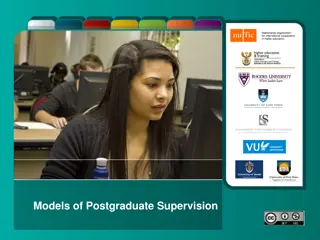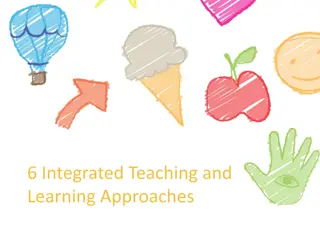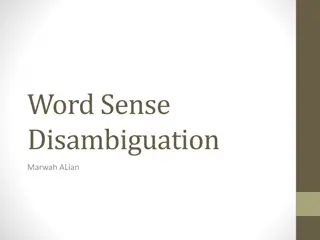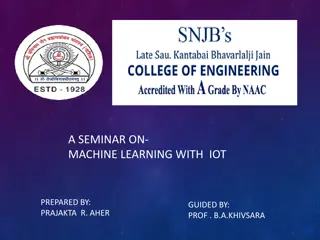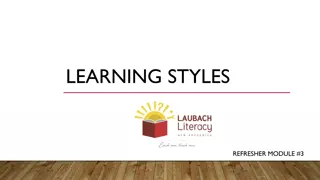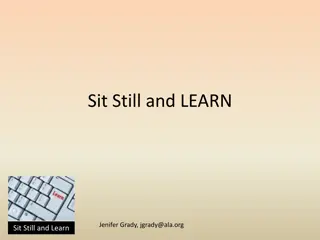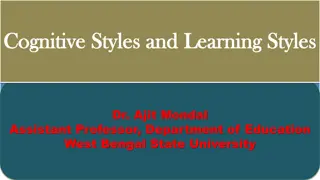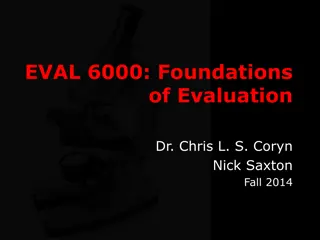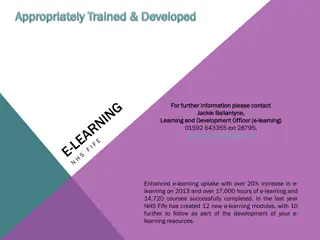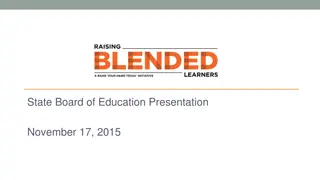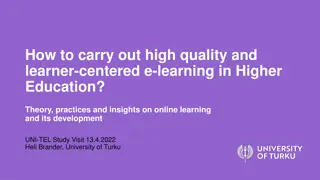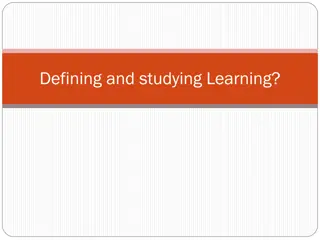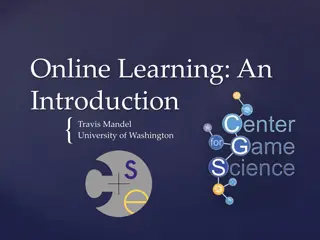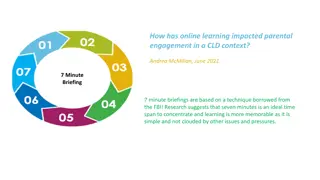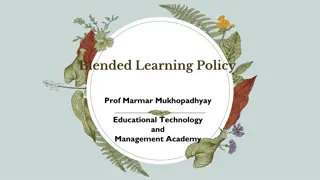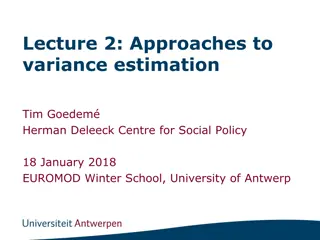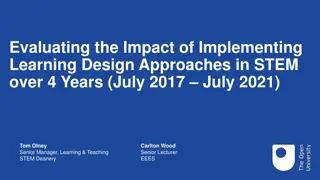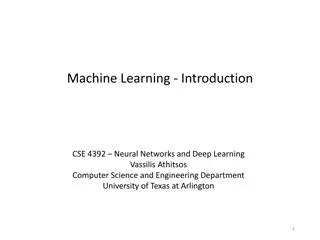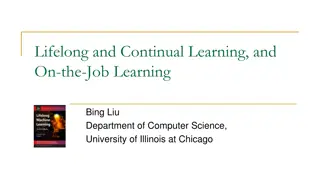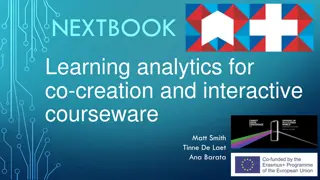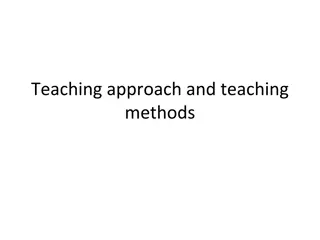get⚡[PDF]❤ Building Habitats on the Moon: Engineering Approaches to Lunar Settle
\"COPY LINK HERE ; https:\/\/getpdf.readbooks.link\/3319682423\n\n[PDF READ ONLINE] Building Habitats on the Moon: Engineering Approaches to Lunar Settlements (Springer Praxis Books) | Building Habitats on the Moon: Engineering Approaches to Lunar Settlements (Springer Praxis Books)\n\"\n
1 views • 6 slides
Approaches in Studying Human-Environment Relationship
Explore different approaches to understanding the dynamic relationship between humans and their environment, including deterministic, teleological, possibilistic, and economic deterministic perspectives. These approaches shed light on how human actions and interactions with the environment have evol
1 views • 9 slides
Treatment of Acute malnutrition using Simplified Approaches.
Simplified approaches in the treatment of acute malnutrition involve modifications to existing protocols to optimize effectiveness, quality, and cost-efficiency. These approaches include family MUAC screening, CHW-led treatment, reduced follow-up visits, expanded admission criteria, single treatment
1 views • 15 slides
Child-Led Approaches to Learning - Training Module Overview
In this training module series for supply and non-ECE staff in early learning settings, the emphasis is on child-led approaches to learning, exploring topics like how learning happens, responsive relationships, and child development. The objective is to enhance the skills of staff members and elevat
2 views • 30 slides
Understanding Major Approaches to Educational Planning
Educational planning involves forecasting needs and setting up frameworks for national action. It plays a crucial role in linking education with economic development. Four major approaches to educational planning include Manpower Planning, Social Demand, Rate of Returns, and Social Justice approache
2 views • 11 slides
Costing Out Approaches
Costing out approaches and studies have been developed to ensure schools and districts have adequate resources to meet state education standards. Implementing these approaches involves professional judgment, evidence-based benchmarks, and data requirements. Using multiple approaches allows for trian
0 views • 12 slides
Understanding Neural Networks: Models and Approaches in AI
Neural networks play a crucial role in AI with rule-based and machine learning approaches. Rule-based learning involves feeding data and rules to the model for predictions, while machine learning allows the machine to design algorithms based on input data and answers. Common AI models include Regres
10 views • 17 slides
Enhancing Learning Skills and Success Strategies
Explore the factors crucial for successful learning, such as prior knowledge, motivation, emotion regulation, and time management. Delve into different approaches to learning, including deep, surface, and systematic approaches. Discover effective study techniques, including self-testing, distributed
2 views • 24 slides
Approaches to Competency-Based Approaches: Support Devices at the UHA Scale
Deployment of Competency-Based Approaches at UHA entails personalized support mechanisms for undergraduate, professional, and master's students. The process involves multiple levels of actors, structured timelines, and a framework for initiating and implementing the approach. Various strategies are
1 views • 28 slides
Approaches to Study Rural Society in India
Study approaches in rural society analysis include historical, structural-functional, comparative, interdisciplinary, cross-cultural, and conflict approaches. These methods delve into factors shaping rural development, societal structures, and inter-village comparisons, contributing to a comprehensi
2 views • 9 slides
Approaches for Impact Assessment at Centurion University, India
Various approaches for impact assessment include Experimental Design, Quasi-Experimental Design, Before-After Comparison, Counterfactual Analysis, Cost-Benefit Analysis, Qualitative Methods, and Mixed Methods. These methods help evaluate the effectiveness and efficiency of interventions by measuring
0 views • 4 slides
Adult Learning Principles and Experiential Learning Overview
Understand the key principles of adult learning and the importance of experiential learning. Explore how adults learn best, their characteristics, and the benefits of experiential learning approaches. Gain insights into creating effective learning environments for adult learners.
0 views • 6 slides
Modern Approaches in Political Science: Overview and Characteristics
Explore modern approaches in political science pioneered by intellectuals to address the limitations of traditional methods. These approaches emphasize empirical data, interdisciplinary study, and scientific methods to draw conclusions beyond political structures and historical analysis. Key modern
1 views • 13 slides
Understanding Deep Transfer Learning and Multi-task Learning
Deep Transfer Learning and Multi-task Learning involve transferring knowledge from a source domain to a target domain, benefiting tasks such as image classification, sentiment analysis, and time series prediction. Taxonomies of Transfer Learning categorize approaches like model fine-tuning, multi-ta
1 views • 26 slides
Gene Prediction: Similarity-Based Approaches in Bioinformatics
Gene prediction in bioinformatics involves predicting gene locations in a genome using different approaches like statistical methods and similarity-based approaches. The similarity-based approach uses known genes as a template to predict unknown genes in newly sequenced DNA fragments. This method in
1 views • 40 slides
Understanding Learning Intentions and Success Criteria
Learning intentions and success criteria play a crucial role in enhancing student focus, motivation, and responsibility for their learning. Research indicates that students benefit greatly from having clear learning objectives and criteria for success. Effective learning intentions should identify w
1 views • 24 slides
Understanding Models of Postgraduate Supervision and Different Supervisory Approaches
Explore the various roles, styles, and models of postgraduate supervision, delving into the distinctions between supervisor tasks, interaction approaches, and supervision structures. Learn how different supervision models like one-on-one, panel, project, and doctoral programme supervision impact res
1 views • 13 slides
Integrated Teaching and Learning Approaches for Children: A Comprehensive Overview
Explore integrated teaching and learning approaches that combine guided play, adult-led learning, and child-directed play to create effective learning environments. Understand the importance of play in children's development, the role of adults in facilitating play, and the concept of guided play an
1 views • 30 slides
Experiential Learning Portfolio Program at Barry University
Experiential Learning Portfolio Program at Barry University's School of Professional and Career Education (PACE) offers a unique opportunity to earn college credit for learning gained from work and community service experiences. Through this program, students can showcase their experiential learning
0 views • 16 slides
Approaches to Study Comparative Politics: Traditional vs. Modern Perspectives
This chapter discusses the importance of approaches in the study of comparative politics, categorizing them into traditional and modern perspectives. Traditional approaches include philosophical, historical, and traditional institutional approaches, highlighting their strengths and limitations. Mode
0 views • 7 slides
Understanding Word Sense Disambiguation: Challenges and Approaches
Word Sense Disambiguation (WSD) is a complex task in artificial intelligence that aims to determine the correct sense of a word in context. It involves classifying a word into predefined classes based on its meaning in a specific context. WSD requires not only linguistic knowledge but also knowledge
2 views • 12 slides
Seminar on Machine Learning with IoT Explained
Explore the intersection of Machine Learning and Internet of Things (IoT) in this informative seminar. Discover the principles, advantages, and applications of Machine Learning algorithms in the context of IoT technology. Learn about the evolution of Machine Learning, the concept of Internet of Thin
0 views • 21 slides
Innovative Learning Management System - LAMS at Belgrade Metropolitan University
Belgrade Metropolitan University (BMU) utilizes the Learning Activity Management System (LAMS) to enhance the learning process by integrating learning objects with various activities. This system allows for complex learning processes, mixing learning objects with LAMS activities effectively. The pro
4 views • 16 slides
Understanding Learning Styles and Criticisms: A Comprehensive Overview
Delve into the concept of learning styles, explore different approaches, and learn how to incorporate visual, auditory, and kinesthetic learning in lesson planning. Uncover the controversies surrounding learning styles, criticisms against fixed style theories, and insightful discussions on matching
1 views • 26 slides
Unlocking the Power of Online Learning with Jenifer Grady
Explore the transformative nature of learning through online platforms with insights from Jenifer Grady. Understand the essence of learning, reasons behind learning, accessibility, and the concept of online learning. Discover how learning can be achieved anywhere, anytime, and delve into the world o
0 views • 26 slides
Understanding Cognitive Styles and Learning Styles in Education
Cognitive styles explore an individual's preferred way of thinking and problem-solving, while learning styles delve into how individuals acquire and process information. These styles influence attitudes, values, and social interactions. By understanding one's own cognitive and learning styles, one c
0 views • 24 slides
Foundations of Evaluation - Conference Experience and Approaches
The Foundations of Evaluation course covers diverse topics such as improvement- and accountability-oriented evaluation approaches, social agenda evaluation, and eclectic approaches. The course material includes insights on decision- and accountability-oriented studies, methods for program improvemen
0 views • 29 slides
NHS Fife E-Learning Success and Development Overview
NHS Fife has significantly enhanced its e-learning provision under the leadership of Jackie Ballantyne, with a notable increase in uptake and successful completion of courses. The development of over 80 e-learning programs has resulted in cost savings and improved accessibility to learning opportuni
0 views • 8 slides
Blended Learning Initiatives in Education: RYHT Presentation Overview
Blended learning, as defined in the State Board of Education presentation on November 17, 2015, is gaining traction in K-12 education for achieving student-centered learning at scale. The presentation highlights the potential benefits of blended learning in enhancing student achievement through pers
0 views • 10 slides
Enhancing E-Learning in Higher Education: Quality and Learner-Centered Approach
Explore the theory, practices, and insights on developing high-quality, learner-centered e-learning in higher education. Discover how to support quality learning online, evolve e-learning practices, and adapt to changes post-pandemic. Learn about transitioning to deep-based learning, promoting stude
0 views • 18 slides
Understanding Learning: Definitions, Theories, and Approaches
Learning is defined as the process of acquiring knowledge and behavior through experience or study, resulting in a relatively permanent change. This includes discussions on behavioral potentiality, instincts, cognitive aspects, and different types of learning such as classical conditioning and cogni
0 views • 33 slides
Understanding Online Learning in Machine Learning
Explore the world of online learning in machine learning through topics like supervised learning, unsupervised learning, and more. Dive into concepts such as active learning, reinforcement learning, and the challenges of changing data distributions over time.
0 views • 49 slides
Impact of Online Learning on Parental Engagement in CLD Context
The global pandemic in 2020 led to the closure of schools, shifting learning to online platforms. This study explores how online learning has affected parental engagement in Culturally and Linguistically Diverse (CLD) contexts. Family Learning, distinct from homeschooling, plays a crucial role in en
0 views • 11 slides
Exploring Blended Learning in Higher Education
Blended learning combines face-to-face and technology-mediated teaching methods to enhance student learning outcomes. It involves various teaching practices such as debates, storytelling, and demonstration, leading to a thoughtful fusion of traditional and online learning experiences. Associated ter
0 views • 27 slides
Approaches to Variance Estimation in Social Policy Research
This lecture discusses approaches to estimating sampling variance and confidence intervals in social policy research, covering topics such as total survey error, determinants of sampling variance, analytical approaches, replication-based approaches, and the ultimate cluster method. Various methods a
1 views • 34 slides
Impact of Implementing Learning Design Approaches in STEM over 4 Years
Evaluating the impact of implementing learning design approaches in STEM from July 2017 to July 2021, focusing on practices, products, and processes. The study explores the Open University Learning Design Initiative, principles of learning design, and research questions related to the impact on modu
0 views • 16 slides
Understanding Machine Learning: Types and Examples
Machine learning, as defined by Tom M. Mitchell, involves computers learning and improving from experience with respect to specific tasks and performance measures. There are various types of machine learning, including supervised learning, unsupervised learning, and reinforcement learning. Supervise
0 views • 40 slides
Lifelong and Continual Learning in Machine Learning
Classic machine learning has limitations such as isolated single-task learning and closed-world assumptions. Lifelong machine learning aims to overcome these limitations by enabling models to continuously learn and adapt to new data. This is crucial for dynamic environments like chatbots and self-dr
0 views • 32 slides
Enhancing Learning Through Co-Created Interactive Courseware and Learning Analytics
Explore the innovative concept of co-creation in interactive courseware and learning analytics to improve student learning outcomes. Discover how students collaborate in a social learning environment, track their progress, and engage in dialogic and constructive pedagogical strategies. Harness the p
0 views • 19 slides
Effective Teaching Approaches and Methods for Educators
Characteristics of good teaching include being sensitive to students' abilities and needs, using effective teaching methods, and integrating interactive teaching approaches. Teachers should structure their teaching in relation to students, be familiar with the curriculum, and develop methods that en
0 views • 40 slides
![get⚡[PDF]❤ Building Habitats on the Moon: Engineering Approaches to Lunar Settle](/thumb/21624/get-pdf-building-habitats-on-the-moon-engineering-approaches-to-lunar-settle.jpg)


